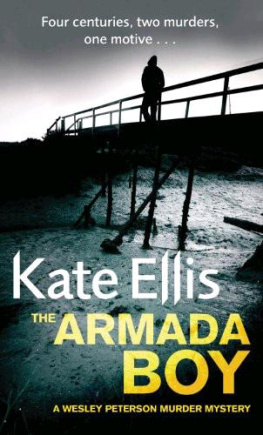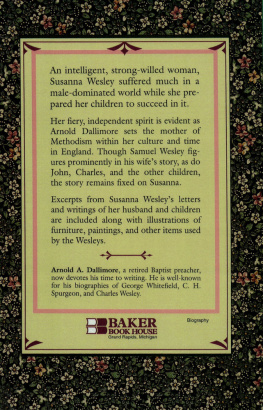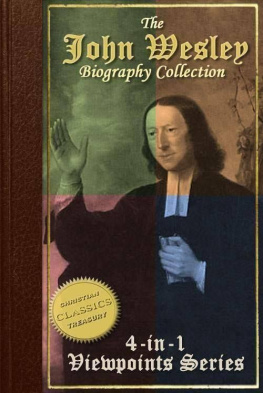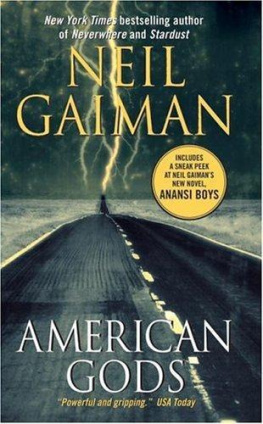Prologue
SUNDAY -10.00 PM
Norman Openheim lit a forbidden cigarette and inhaled deeply. It was good. He put the silver lighter carefully back in the pocket of his baseball jacket and blew out a stream of warm, savoured smoke into the chilly night air.
He stood there in the middle of the ruined chapel. It was good to know that some things hadnt changed in fifty years. He had smoked back then everyone had. Cigarettes had been simpler currency than sterling. He had smoked on this very spot, his girl in his arms. But then he had had no worries about the health risks of nicotine and tar. He had lived for the moment, not knowing whether he would be killed by a German shell or bullet the next day or if he would soon be drowned in the icy sea off Normandy.
Everyone had smoked back then.
The unaccustomed nicotine made Norman feel a little light-headed. Dorinda, his wife, had put her dainty, pedicured foot down ten years ago. No more cigarettes; they were bad for your health. This one was the first he had tasted in all that timethe first act of rebellion. It felt so good that he could almost imagine he was seventeen again, the age he had been when he had laststood on this spot.
A high-pitched whining in his ear reminded him that his hearing aid was playing up again, returning him bitterly to the realities of his ageing body malfunctioning, flabby and balding.
Seventeen was a long time ago.
He pushed back his baseball cap and sucked hungrily on the cigarette. Birdsong there used to be nightingales. He remembered hearing their sweet song as he had made love to Marion in the shelter of the crumbling chapel walls. He touched his hearing aid and winced as it emitted a vicious electronic crunch. He banged it a few times before it gave up the ghost altogether. Maybe it needed new batteries. But it didnt matter not here,
not now not while he contemplated that youthful coupling with his pretty local girl: the pleasure, the excitement, heightened by the hovering imminence of death at the hands of the enemy.
As his hearing aid was broken, Norman did not hear his killer approaching slowly behind him and he was unprepared for the blade that pierced his ribs and penetrated his beating, aching heart.
MONDAY -10.30 AM
Dorinda Openheim tapped her tiny patent leather shoe impatiently.
The colonel, a large, square man with grizzled hair, strode towards her frowning with concern.
Sorry, Dorinda we cant wait much longer. Youre sure he
said nothing?
Dorinda shrugged. I took one of my pills last night. I was asleep when he came to bed and he was gone when I woke this morning.
Colonel Willard G. Sharpe raised his bushy grey eyebrows.
Soldiers he could figure, but women If Norman was avoiding his pocket-sized harridan of a wife, Colonel Sharpe regarded that as a wise strategy.
Well have to begin without him. The vicar from St Johns church is taking the service we cant keep the good padre waiting: got to keep friendly relations between old allies, especially when you remember the sacrifices these folk round here made back in 44.
Dorinda pursed her lips. The hardships of a few English villagers fifty years ago didnt concern her: her husbands unexplained absence did.
Look, Dorinda, Normans all grown up now he can take care of himself. We should be at the memorial by a quarter to.
Dorinda looked round at the group waiting by the hotel door, the subdued veterans and their smartly dressed, chattering wives.
She would go without Norman. The colonel was right. Norman was grown up he could do what the hell he liked.
She caught the eye of a tall, white-haired man who was hovering at the edge of the waiting group. She thought, not for the first time, how distinguished Todd Weringer looked in his smart navy blue blazer and slacks not like Norman who never had
that darned baseball jacket off his back. She smiled sweetly; Todd Weringer smiled back and winked.
Shall we go without him, then, Dorinda? said Colonel Sharpe impatiently. Hes probably out reliving a few old memories. He knows the lie of the land round here he wont get himself lost. Hell probably make his own way to the service.
Sure. Lets go. Dorinda turned and marched towards the door,
her hand brushing Todd Weringers as she passed.
MONDAY-11.00 AM
The chantry chapel of St Dennis, founded by Sir Roger de Carere in 1263, had stood ruined and overgrown at the edge of the village of Bereton since its closure by Henry VII in 1545. It slumbered amid its weeds like Sleeping Beautys castle - being of use only to
courting couples - while the villages spiritual needs were taken care of by the ancient parish church of St John a few hundred yards away.
Neil Watson of the County Archaeological Unit was planning to awaken the ruins from their sleep. He parked his rusty Mini in a wide part of the lane leading out of Bereton and walked back the few yards to the overgrown footpath that led to the chapel. Neil liked to be early; to have a chance to look round the site of an excavation before his colleagues and their equipment arrived. He liked to take in the atmosphere of the location; to imagine the events, the people, the emotions that had shaped the place before
he started dissecting the evidence of its past.
He was relieved to see that the path to the chapel was passable, kept that way by curious walkers and young lovers from the village.
He passed through a crumbling archway into the body of the roofless nave, its floor covered by patchy grass, its walls shoulder height to the left but much taller to the right. The windows at the chapels east end, though empty of their tracery and jewelled
glass, were remarkably intact A half-crumbling tower still stood proudly at the west end. The chapel must have been quite a place in its day.
Neil strolled towards the east end, kicking an empty plastic bottle. Here and there the ground was littered with cans, cigarette packets and the occasional used condom: how the youth of the village would miss this place while the site was fenced off for the
excavations. They would have to use their ingenuity to find somewhere else or spend the next few months pursuing chastity and useful hobbies. Neil knew which option he would have chosen at their age.
At first he thought the dark shape in the south-east corner of the chancel was a pile of old clothes, dumped there by an environmentally unaware villager. But as he drew nearer he saw the pile had a human shape.
Shit, he mouthed, looking down at the elderly man who lay before him on the ground. A baseball cap was stuck firmly on the head and the jacket that proclaimed the name of some American sports team looked bizarrely inappropriate for someone of the dead mans advanced years. He stood over the body and stared at it, willing it to go away or wake up and transform itself into a drunken vagrant anything that wouldnt disrupt his well-planned dig.
Neil delved into the pocket of his shabby waxed jacket and took out a mobile phone. He pressed the buttons, still looking warily at the dead man and the startled expression that was frozen in the staring eyes. I need to speak to Detective Sergeant Peterson, he
said, the tension audible in his voice. Its urgent.
Chapter One
Although the most recent invasion of our beautiful village came in 1944, when the area was evacuated by the US forces for the D-day landing rehearsals, we must bear in mind that history has a habit of repeating itself.
It was back in the reign of the first Queen Elizabeth, in 1588, that Bereton was invaded by sailors from the Spanish ship San Miguel , which was wrecked after being separated from the great Armada approaching up the English Channel.
From A History of Bereton and Its People by June Mallindale
Detective Sergeant Wesley Peterson put the phone down. He could see the inspector through the glass office partition. He was slumped in his chair surrounded by files; jacket off and badly ironed shirtsleeves rolled up to reveal a large tattoo on his forearm
Next page












